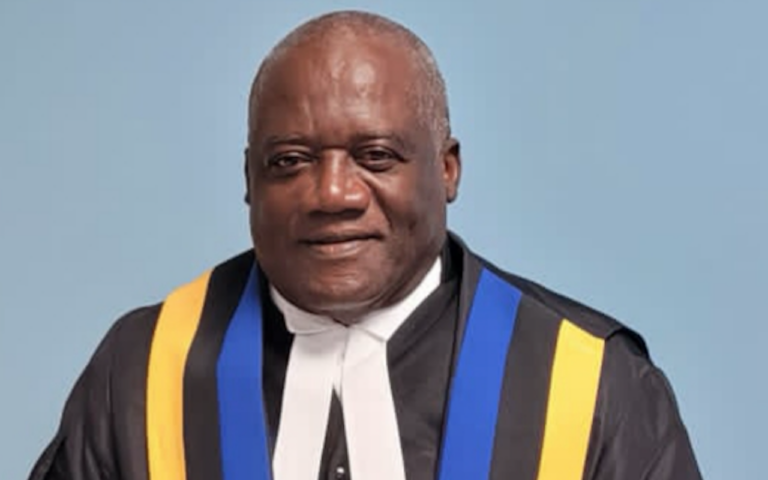
Completing firearm-related cases with alacrity is one of the major solutions to the gun crimes plaguing Barbados.
Outspoken Judge Carlisle Greaves expressed that strong belief from the Bench on Friday making it clear that there should be no reason for accused men not to be before the High Court for trial within three months of being charged.
He said the five judges currently presiding over the Criminal Assizes are ready to make the sacrifice to get these cases heard given what is taking place in the country but they are “frustrated by elements” over which they had no control.
Justice Greaves told potential jurors that there were accused persons who want to plead guilty to serious matters but the cases were stalled as files were not produced in a timely manner.
“The bottleneck is created down below, the spring is not flowing down below and it is drying the river. I have been preaching this for over 30 years . . . One of the major answers to our problem is speed, for these firearms and so on.
“I cannot see, given the standard of our investigations, why it should take more than three months before men are standing up for trial. It cannot be enough just to charge a man before a Magistrates’ Court and do nothing more. The case is not solved when a man appears before the Magistrates’ Court. It is solved when you get a verdict after a trial, either when he pleads guilty or the jury says guilty or not guilty.
“The police have to produce the files quickly and I guarantee you that if we get those things happening then we can try men quickly, before the guns can cool off. The shootings we see across this country are going to be substantially and significantly reduced I guarantee you that,” Justice Greaves added.
He maintained that a system of getting matters adjudicated quickly before the court had proven to work in the past. He made reference to the years he worked as a magistrate in the courts of Barbados between 1992 and 1998 and when he migrated to Bermuda where he was also on the Bench of the Magistrates’ and Supreme Courts.
He said Barbados saw a fall in serious crime from 1993 to 1998, using that approach. By 1994, he recalled, crime fell by 25 per cent “because we targeted the gunmen, robbers and the burglars”.
“Crime fell every single year according to the report of the police up to 1998, the year I left. I am not saying it was me alone but I am saying it is no accident that that happened.”
He said a similar approach was taken in Bermuda where within three months of a man appearing before the Magistrates’ Court on a serious firearm charge, murder, attempted murder, possession or use of a firearm, he was committed to the Supreme Court for trial.
“Within three months of committal to the Supreme Court [they] were guaranteed a trial, six months at the worst. So most men were tried certainly within a year of the date they [allegedly] committed the offence. And what happened, the gun killings, the gun shootings went down so much that we were able to have no backlog for ten years straight from 2006 to 2015 . . .”
That system, the judge said, can work here again if all the departments needed to make the process run smoothly did their part.
“If we try these cases quickly it will raise the confidence of our citizenry, they will come to believe that something is happening, they will cooperate better with the police. People would help to give police evidence. They are not going to give police any evidence if they look around and ten years later nothing has happened, people walking around in society doing the same thing”.
He explained that handling cases in such a manner also “sucks the confidence of those who would commit these crimes in our society because they know where they are going. As long as a man is walking around on bail or sitting on remand without a trial his confidence is still up, so he is not going to just sit down and just watch TV . . . . Men who are where they belong if they belong there do not kill anybody, they can’t shoot up de place . . .”
He revealed that High Court judges put a system in place in January 2020 that “would work anywhere” and was tailor-made to particularly work in Barbados but COVID proved a setback. Despite this the High Court, he said, was able to dispose of over 200 cases during those two years.
“But we can’t just sit down and boast on our laurels. We can double or triple that in a good year with no COVID to shut us down.
“We have a team of judges here ready to work their fingers . . . but we need help.
“The criminal element has no right beating us. They cannot beat us if we are serious.
“We can’t charge men and ten years later they haven’t been tried yet and then they benefit from the delay . . . getting discounts . . . for the time of the delay. Who gives the victims discount; people can’t remember, diaries lost, so they [the accused] exploit that.”
(fernellawedderburn@barbadostoday.bb)
The post Three-month timeline appeared first on Barbados Today.